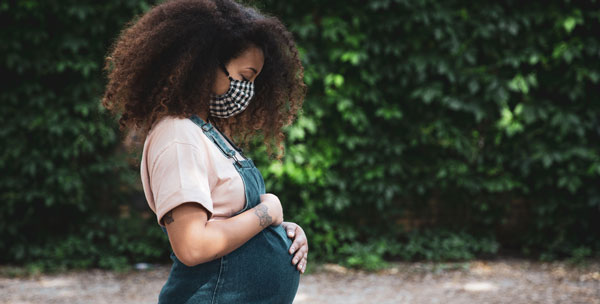
How will COVID-19 affect prenatal and postpartum care visits?
To decrease the frequency with which we ask pregnant mothers to be out in the community, we are increasing our telehealth visits. Telehealth allows for the same quality care as in-person visits while maintaining social distancing, and is a great option for all patients, including our labor and delivery patients. Individual in-person visits may be less frequent and correspond to visits that require lab work or an examination that is not possible during a telehealth visit – ultrasound as an example.
Is it safe for me to go to my prenatal appointments?
Absolutely, one of the safest places to be is in our health centers. All of our health centers are conducting active screening of patients as they arrive. Our universal mask policy has greatly improved the safety of our clinic visits, along with social distancing and hand hygiene. Nebraska Medicine is a national leader in infectious diseases, and our teams are here to keep you safe while you receive care.
Is it safe for me to deliver at the hospital?
Yes. Receiving care in the hospital setting is very safe. We have screening measures in place as you arrive at the hospital, and our universal masking policy has been keeping our employees and patients safe for months. Additionally, those with COVID-19 are separated from other patients and cared for in units specifically designed to prevent the spread of respiratory illness. All staff caring for COVID-19 patients wear personal protective equipment to prevent the spread of disease and practice proper hand hygiene measures to limit exposure.
Will I be screened for COVID-19 prior to delivery?
Nebraska Medicine tests all patients in the hospital for COVID-19, including patients presenting in labor. If you are scheduled for delivery (induction or cesarean), a screening will be scheduled before your arrival. This is a separate appointment, usually 24 to 48 hours ahead of your scheduled arrival.
Will I need to isolate at home before delivery?
Providers at the Olson Center for Women's Health are continuing to recommend self-isolation two weeks prior to scheduled delivery (about 37 weeks gestation). This means you and people in your household should limit contact with others as much as possible, including community activities such as restaurant dining and personal events such as extended family gatherings. Wear a mask any time you are in a public place and practice consistent hand hygiene. This recommendation will probably continue for the near future, and changing this would be based on a significant lowering in the community positivity rate.
Are there risks of transmitting the virus from mom to baby?
There is a slight risk of transmitting the virus after delivery. There is no evidence that transmission occurs before delivery. If a mother is COVID-19 positive at the time of delivery, special education and decisions will be made at that time. The best way to ensure you and baby stay healthy is for you and members of your household to limit contact with others as much as possible, wear a mask any time you are in a public place and practice consistent hand hygiene. Children under age 2 should not wear face coverings.
Can a baby be infected from breast milk?
No, breast milk has not been demonstrated to spread the virus. A mother with acute COVID-19 infection would need to be careful with hand hygiene, masking and cleaning the breasts when breastfeeding.


